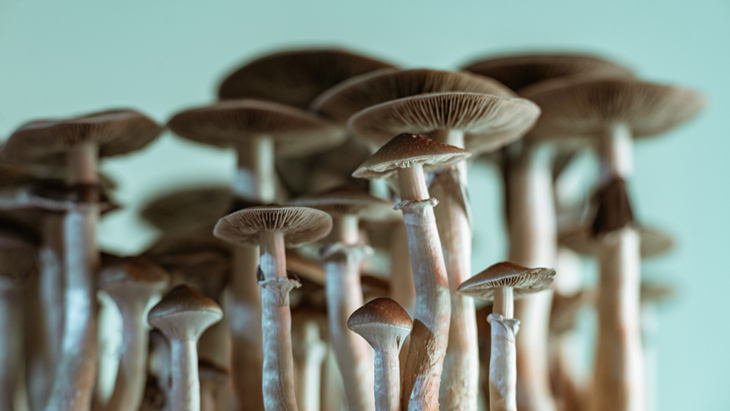
In recent years, magic mushrooms have been making waves in the medical world, and not just for the major trip they provide. New research has shown that magic mushrooms, which are also known as the hallucinogenic psilocybin, works to treat particular health condition such as depression and post-traumatic stress disorder (PTSD.)
Research also shares that ingesting small doses of the psychedelic psilocybin drug, which is found in magic mushrooms, can help with easing disorders that have otherwise shown that they are resistant to traditional treatment without having short or long-term side effects in healthy people either.
A study, which was led by researchers from the Institute of Psychiatry, Psychology & Neuroscience (IoPPN) at King’s College London, has found that the drug can actually be safely given in up to six patients while using doses of just 10 mg or 25 mg at the most.
The study was done in partnership with the mental health care company, COMPASS Pathways, which showed how much of an essential first step it is for experts to prove both the safety and feasibility of psilocybin as treatment side by side with talking therapies that cover a range of different conditions such as treatment-resistant depression (TRD) and PTSD.
Magic mushrooms are also considered the first of its kind to go head-to-head with other traditional treatments on the market, which are actually quite ineffective.
While early research has shown that psilocybin could be a truly promising form of treatment, it’s only now that human trials are being done. In fact, this trial is truly a first of its kind, as it investigates the ‘magic of the mushroom’ exhaustively.
In the study, researchers used a sample of 89 participants that had not taken any psilocybin in the past year who were asked to be a part of the trial. Afterwards, they picked 60 people at random who were given either a 10 mg or a 25 mg dose of psilocybin within a controlled lab environment.
After receiving their treatments, the patients were given on-on-on support from the trained psychotherapists. Of the remaining 29 participants that were used for the control group, they were given a placebo drug and psychological support as well.
The study participants were then monitored closely for the next six to eight hours, and followed for the next 12 weeks. During this time, they were also assessed so that the research group could track the number of possible changes, which included sustained planning, attention, memory, and their ability to still process their emotions.
Clinical scientists from the National Institute for Health Research, Dr. James Rucker, who also happened to be the study’s lead author shared, “This rigorous study is an important first demonstration that the simultaneous administration of psilocybin can be explored further.”
He added, “If we think about how psilocybin therapy (if approved) may be delivered in the future, it’s important to demonstrate the feasibility and the safety of giving it to more than one person at the same time, so we can think about how we scale up the treatment.”
Meanwhile, Dr. Rucker, who also happens to be an honorary consultant psychiatrist at South London and Maudsley NHS Foundation Trust also said, “This therapy has promise for people living with serious mental health problems, like treatment-resistant depression (TRD) and PTSD.”
They can be extremely disabling, distressing and disruptive, but current treatment options for these conditions are ineffective or partially effective for many people.
Notably, no one withdrew from the study, and there were no reports of the doses of psilocybin to have short or long-term negative effect in the participants either.
As for COMPASS Pathways’ chief medical officer, Professor Guy Goodwin, said, “This study was an early part of our clinical development program for COMP360 psilocybin therapy.”
He also shared, “It explored the safety and feasibility of simultaneous psilocybin administration, with one to one support, in healthy participants, and provided a strong foundation to which we have now added positive results from our Phase IIb trial in 233 patients with TRD, and from our open-label study of patients taking SSRI antidepressants alongside psilocybin therapy.”
“We are looking forward to finalizing plans for our phase three program, which we expect to begin in Q3 2022,” he concluded.
Since the study began, the research group has managed to complete phase two, which explored the efficacy and safety of magic mushrooms in people that are living with TRD and PTSD. They are analyzing their findings to see what will happen next.
You can take a look at their study, which was published in The Journal of Psychopharmacology.



